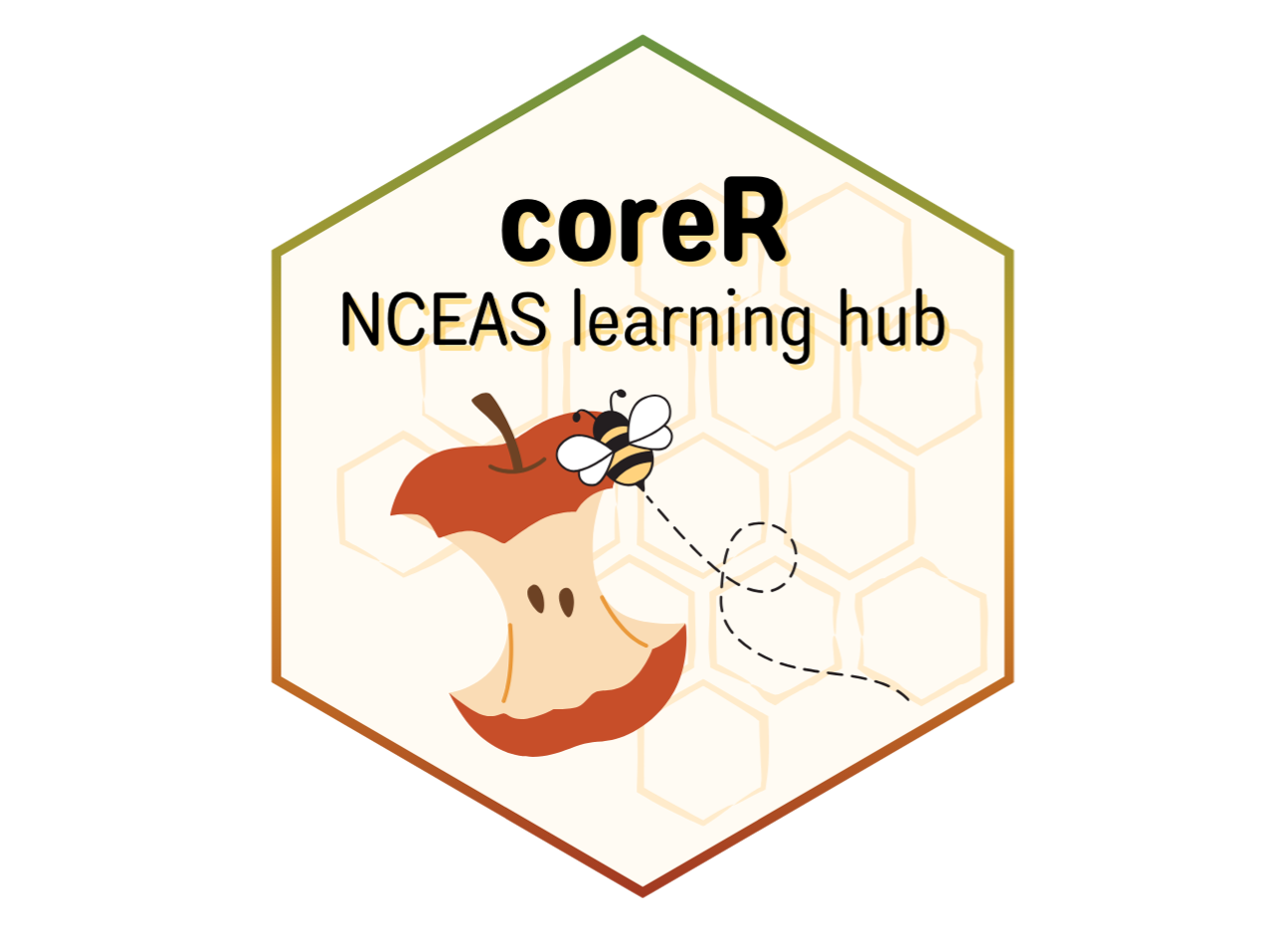Our Courses
The Learning Hub maintains a collection of expert data science learning materials, programs and more. Get familiar with and find resources on:
coreR | OpenS | Customized Trainings
coreR
Course description
This 5-day course opens the door to using powerful data science tools for researchers in all stages of their careers. Introducing tools like R programming, collaborating with Git and GitHub, and data management best practices.
Learning Objectives
- Increase your familiarity and confidence with data science tools.
- Overview of tools you can use within the R programming language and RStudio interface.
- Effectively manage data using tidy data practices and understanding the importance of quality metadata.
- Establish best practices and utilize tools like Git & GitHub to optimize collaboration.
- Better communicate scientific analyses and results using Quarto, GitHub webpages, and R packages like ggplot and leaflet.
Is coreR the right fit for you?
coreR is a beneficial course for researchers from any field at any stage of their career who want to master essential data science skills using the R programming language. While the course focuses on environmental data, the tools, techniques, and skills you'll gain are widely applicable across disciplines. Whether you're analyzing complex datasets, creating impactful visualizations, or diving into statistical modeling, coreR will equip you with the knowledge and confidence to tackle data challenges in any research context. Don't miss the chance to build your data science foundation with R and unlock new possibilities in your research!
This course is taught in partnership with DataONE.
Open Science for Synthesis (OpenS)
Course Description
Whether you’re just starting out in your research career or you’re looking to deepen your expertise, this hands-on course offers valuable data science skills. This course was designed for both early-career researchers and established professionals seeking to enhance their skills in science synthesis, reproducible science, and data management.
In 2013, 2014, and 2017, participants came to NCEAS for three weeks of extensive training in scientific computing and software with a focus on reproducibility. This page archives the course format and materials from these training sessions.
Learning Objectives
The training focuses on scientific computing and software tools for reproducible research. Instructors emphasize integrating statistical analysis into well-documented workflows, using open-source, community-supported programming languages such as R and Python. Participants gain practical skills for quickly and reliably implementing open-source scientific software with applications to ecological, environmental, and evolutionary Earth, and marine science synthesis.
Is OpenS the right fit for your team?
OpenS is recommended for any organizations interested in synthesis research and learning scientific computing and software skills. Learn more about collaborating with NCEAS and hosting your trainings events with us here.
Customized Trainings

Course Description
NCEAS focuses on science synthesis, which we support through our working group model. As researchers ourselves, we understand that data science needs differ across teams. Keeping this in mind, NCEAS offers fee-based training tailored to the unique needs of each group, all grounded in the principles of team science.
For almost 30 years, NCEAS has been at the forefront of supporting data science and fostering collaborative research and Long Term Ecological Research Network synthesis working groups and beyond. Over the years, we’ve built a wealth of resources including comprehensive guides, ad hoc trainings, and hands-on computing support that empower teams to thrive.
Our Data Science Tools:
- Data Repositories
- Analysis and Modeling Tools
- Data Management Essentials and Metadata Training
- Infrastructure Development
- Programming Best Practices
Are customized trainings the right fit for you?
Are you looking to enhance your team’s data science skills? Contact us at learning-hub@nceas.ucsb.edu for more information on our customized trainings and see examples of the materials and services we provide below, or visit our partner with NCEAS page for other options. Trainings can be delivered on-site or virtually.
NCEAS has supported nearly 500 groups over the past 30 years. Explore impacts from our working groups here.
-
Additional Opportunities
The Learning Hub collaborates with several other NCEAS and UCSB projects.
Explore additional opportunities on our About Us page.

